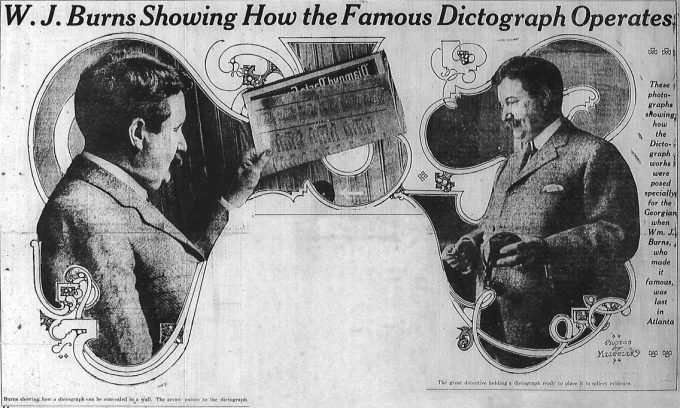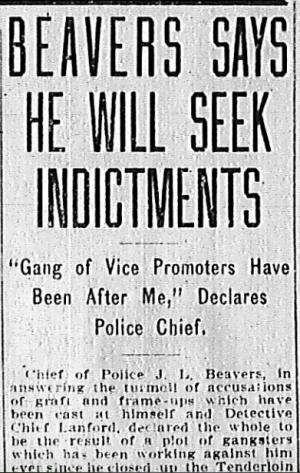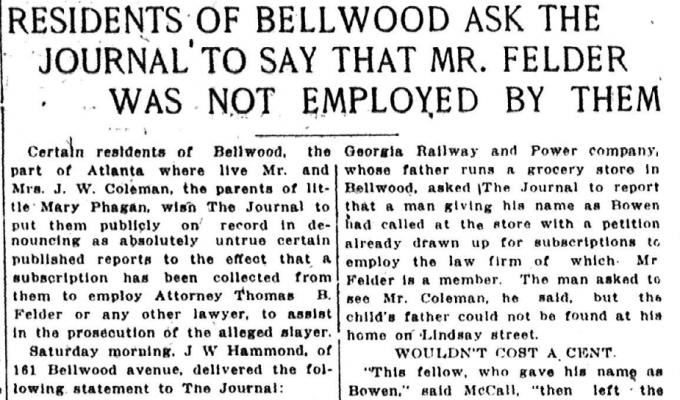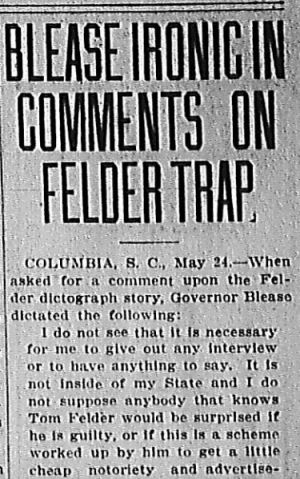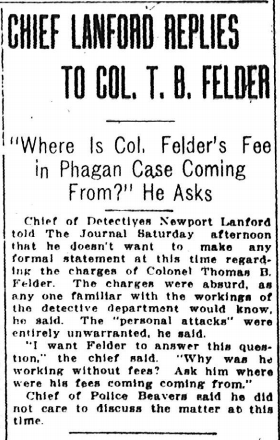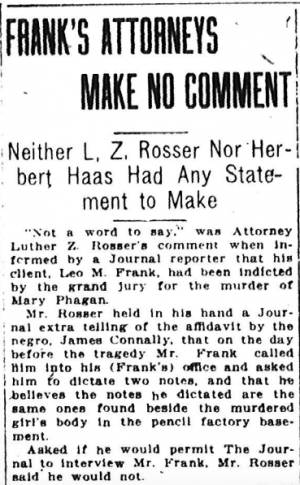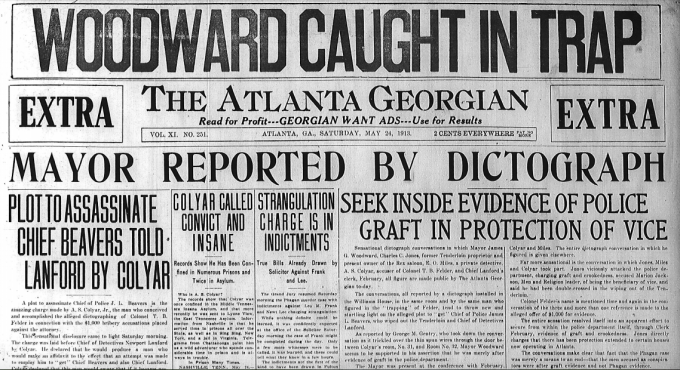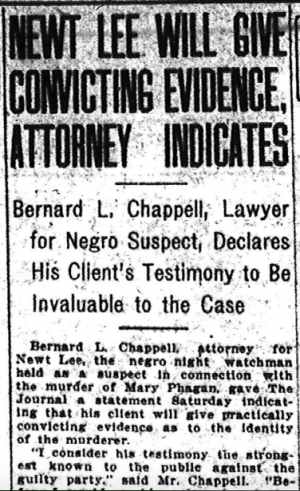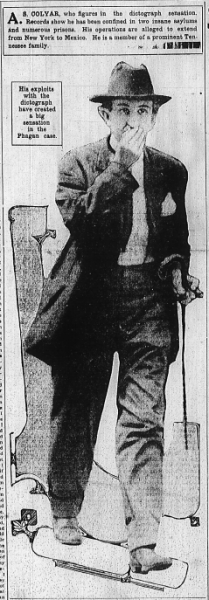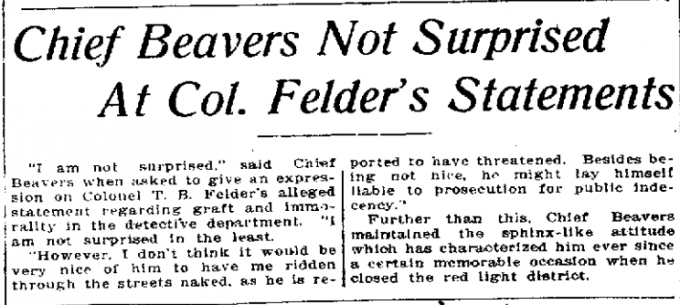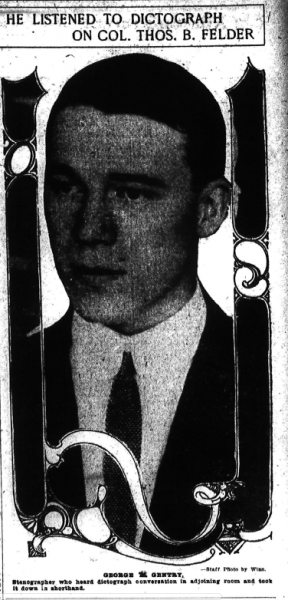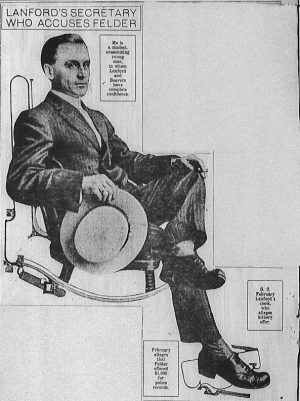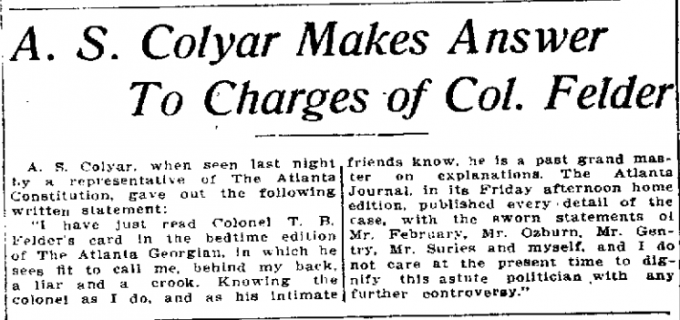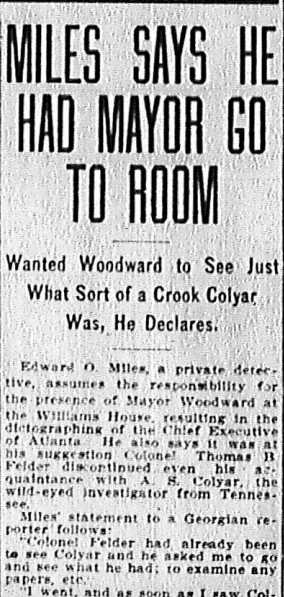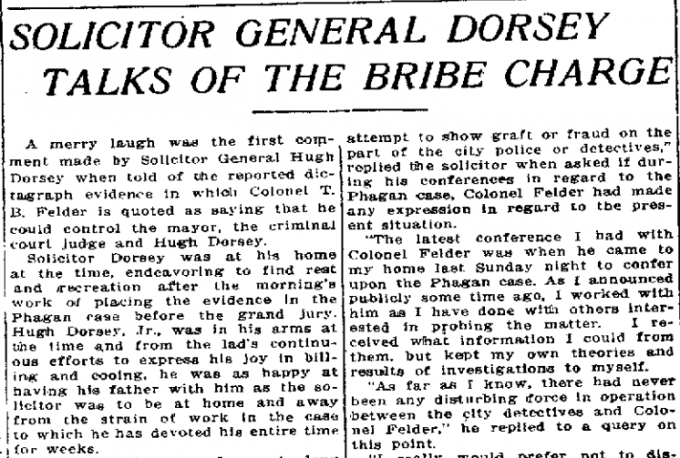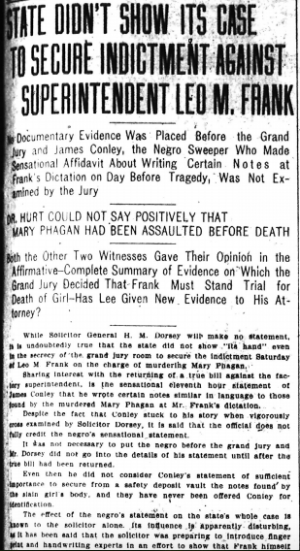 Another in our series of new transcriptions of contemporary articles on the Leo Frank case.
Another in our series of new transcriptions of contemporary articles on the Leo Frank case.
Atlanta Journal
Sunday, May 24th, 1913
No Documentary Evidence Was Placed Before the Grand Jury and James Conley, the Negro Sweeper Who Made Sensational Affidavit About Writing Certain Notes at Frank’s Dictation on Day Before Tragedy, Was Not Examined by the Jury
DR. HURT COULD NOT SAY POSITIVELY THAT MARY PHAGAN HAD BEEN ASSAULTED BEFORE DEATH
Both the Other Two Witnesses Gave Their Opinion in the Affirmative—Complete Summary of Evidence on Which the Grand Jury Decided That Frank Must Stand Trial for Death of Girl—Has Lee Given New Evidence to His Attorney?
While Solicitor General H. M. Dorsey will make no statement, it is undoubtedly true that the state did not show “its hand” even in the secrecy of the grand jury room to secure the indictment Saturday of Leo M. Frank on the charge of murdering Mary Phagan.
Sharing interest with the returning of a true bill against the factory superintendent, is the sensational eleventh hour statement of James Conley that he wrote certain notes similar in language to those found by the murdered Mary Phagan at Mr. Frank’s dictation.
Despite the fact that Conley stuck to his story when vigorously cross examined by Solicitor Dorsey, it is said that the official does not fully credit the negro’s sensational statement.
It was not necessary to put the negro before the grand jury and Mr. Dorsey did not go into the details of his statement until after the true bill had been returned.
Even then he did not consider Conley’s statement of sufficient importance to secure from a safety deposit vault the notes found by the slain girl’s body, and they have never been offered to Conley for identification.
The effect of the negro’s statement on the state’s whole case is known to the solicitor alone. Its influence is apparently disturbing, and it has been said that the solicitor was preparing to introduce finger print and handwriting experts in an effort to show that Frank himself wrote the words on the two sheets of paper found in the basement of the National Pencil factory on the morning of April 27.
If Conley’s story can not be shaken, the experts will not be needed unless it is to swear to the similarity of his handwriting to that of the notes. Continue Reading →

